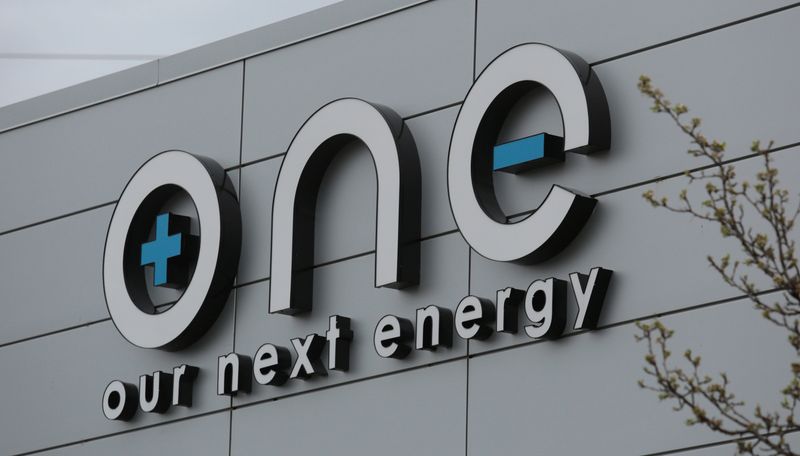By Paul Lienert
(Reuters) - Michigan-based startup Our Next Energy has unveiled a new anode-free battery pack designed to slash cell cost as much as 50% while delivering up to 600 miles (965 km) of driving range, the company said Tuesday.
The young company hopes to begin producing its Gemini pack at a new 20-gigawatt-hour U.S. manufacturing plant in 2026, founder and Chief Executive Mujeeb Ijaz said in an interview.
Other battery companies are developing anode-free designs, but ONE’s Gemini battery appears to be unique in that it uses cells with two different cell chemistries, including one for everyday driving and a second to extend driving range on longer trips.
The secret sauce is in Gemini’s large-format range-extender cells. While the standard cells use relatively conventional lithium iron phosphate cathodes and graphite anodes, the range-extender cells are anode-free, which eliminates the use of graphite and anode-making equipment.
The cathodes are designed to use a unique blend of lithium and manganese and a much lower percentage of nickel, while eliminating cobalt, according to Ijaz.
“It has been my long-term aspiration to eliminate both nickel and cobalt,” Ijaz said of two key cathode materials in most current electric vehicle batteries that are more expensive and less sustainable than such common materials as manganese.
While the lithium-rich manganese nickel cathodes are still being refined, the current version of the range-extender cells uses cathodes made of nickel, cobalt and manganese.
By eliminating the anode in those cells, ONE says it can slice the cell cost in mass production by $50 per kilowatt-hour — a significant savings over current costs estimated at $100-$110 per kWh.

“Our goal is to launch the Gemini battery in 2026 with zero cobalt and 26% nickel or less, using manganese as the primary cathode material,” Ijaz said.
ONE's Gemini battery will be displayed Sept. 13-15 at The Battery Show in Novi, Michigan.